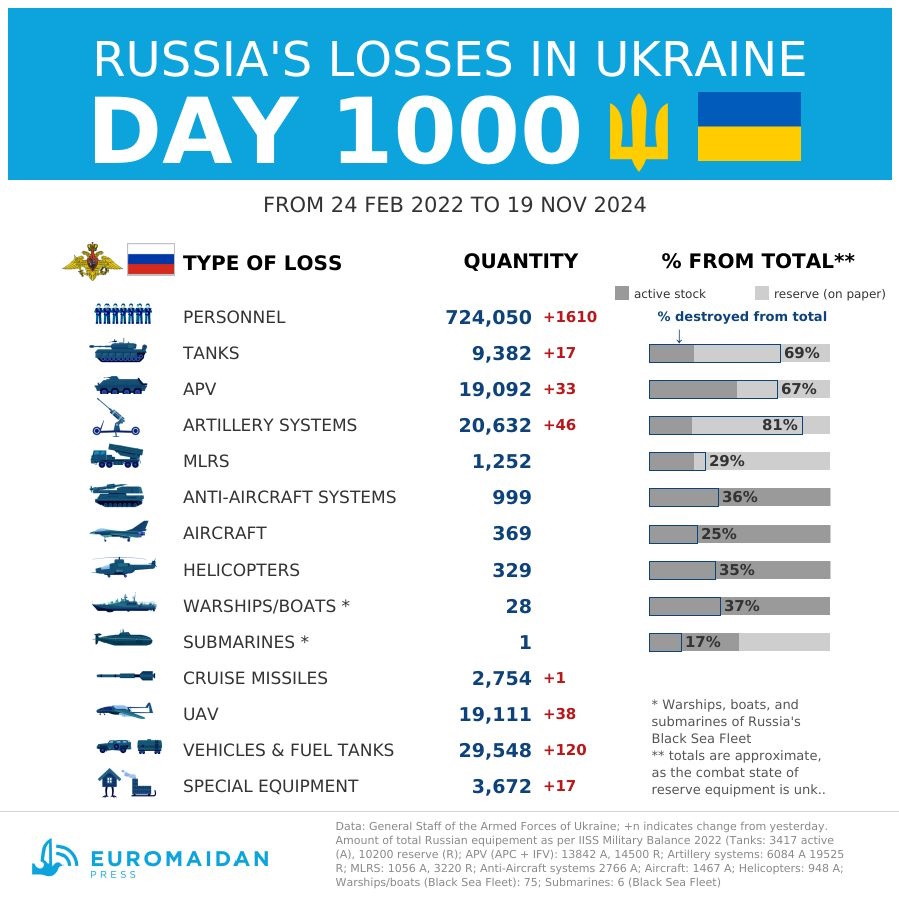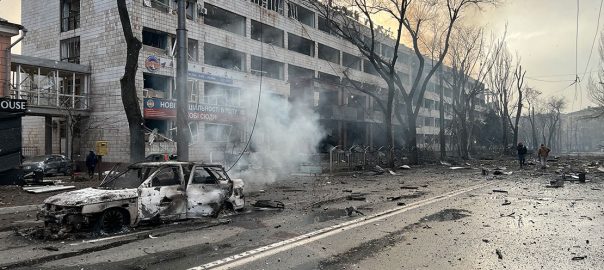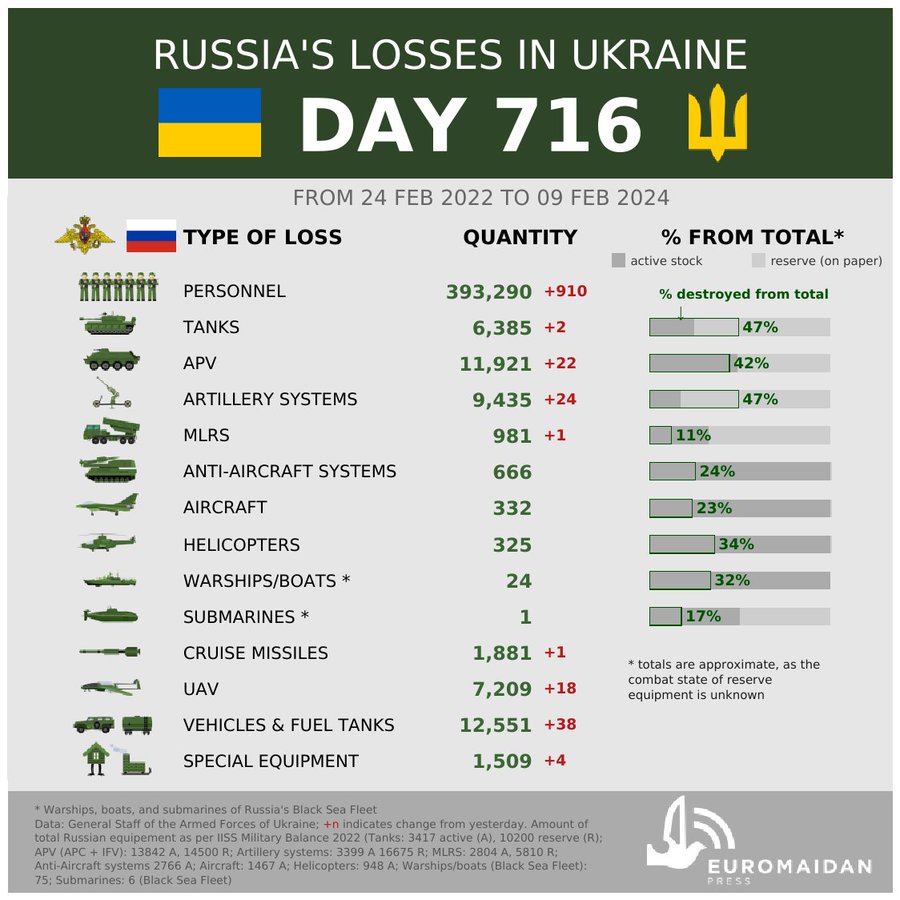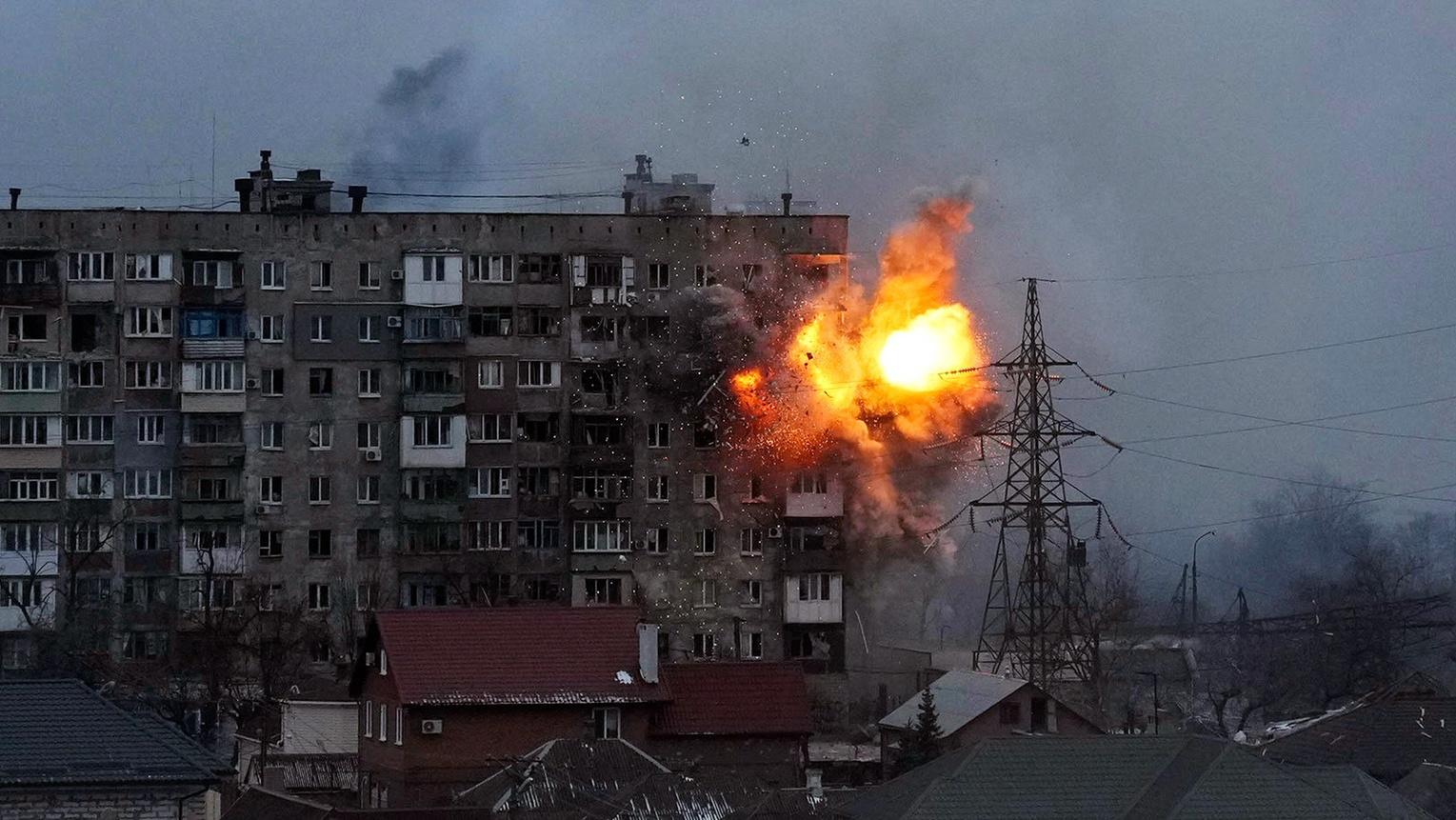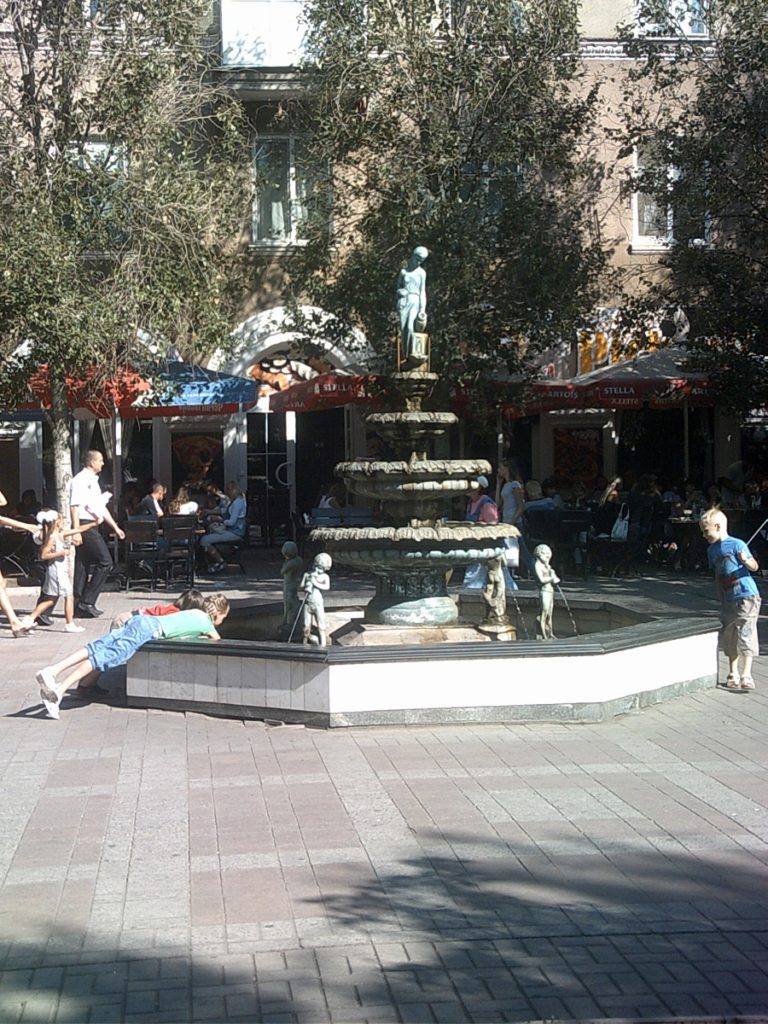I haven’t been posting very much lately, largely because there’s little news out of Mariupol to share, but I can’t let this important anniversary go by unnoticed. It was three years ago today (February 22) that Russia invaded Ukraine. Well, invaded Ukraine again, since they’d actually done so earlier in 2014. But three years ago was the start of the “hot war.” And since there’s no chance things are ending today, it’s also the first day of the fourth year of the war.
I’ve said it before and I’ll say it again: Ukraine has been amazing. Utterly awesome. Their military was somewhat iffy in 2014, and if Russia had done it’s “hot war” invasion then, there probably wouldn’t be a Ukraine today. After the Maidan Revolution and the Russian invasions of Crimea and Donbas, Ukraine slowly built up their military capability. I’m sure they weren’t fully expecting what happened, but they were in a better place to deal with it when it did.
Russian media was famously boasting how they’d take Kyiv in three days — I don’t think Putin ever said it himself, though he might have been thinking it. This after weeks of lying about the forces amassing on Ukraine’s borders (“Just training exercises, nothing to see here!”). There were stories about Russian soldiers and officers packing in their dress uniforms for the military parades they’d be having down Khreshchatyk Boulevard once the cowed Ukrainians surrendered. But Ukraine foiled those expectations, often with dramatic effect, though not without some dramatic losses in the process, including the world’s largest transport aircraft.
Since then, much of the world has stepped up to help Ukraine, and have been witness to the barbaric actions of the Russian invaders (and, probably, some of the home-grown terrorists they shanghaied from the occupied territories). The Ukrainians have proven resourceful and innovative, largely fighting the Russians to a standstill, and even capturing a portion of Russia itself. (I love the stories that come out of Kursk, where the residents actually prefer being “occupied” by the Ukrainians than “free” with the Russians. Probably has something to do with Russia shelling their own people and ransacking the homes of their citizens.)
Russian, attacking a neighboring country from a position of apparent military superiority, has failed in their objectives and has gone on to commit war crimes on a near daily basis — Bucha, Mariupol, Lyman and elsewhere. (It should be noted that this is not because of their failed invasion; this is just how they operate.) Ukraine, on the other hand, has not only defended itself capably, it had done so without stooping to the same barbarism of their attackers. Russia has repeated targeted Ukraine’s civilian infrastructure — schools, shopping centers, hospitals, apartment blocks, etc. Russia largely targets Ukrainians, trying to cause them pain and demoralize them. Ukraine has repeatedly only targeted military and economic infrastructure: military bases and compounds, weapons manufacturing and supporting facilities, oil production, etc. The number of Ukrainian citizens kills by Russians numbers in the thousands, but Russian citizens killed by Ukrainians is likely measured in dozens — and none of those losses were from being directly targeted.
I’m sure there are Ukrainians that would love to see their military bring the pain to the Russian people — abstractly — by sending a missile or drone wave against a city proper. I don’t see that happening. I won’t say it’s not in their nature, but having been in Ukraine for an extended period of time last year — as well as from my travels there beforehand — I know that they are a kind and generous people. Perhaps have been fought over for centuries has made them not only resilient but also empathetic to others. Despite this kind aspect to their nature, they are not at all unwilling to fight and don’t suffer tyrants lightly. (It could be argued that kicking out their Putin-controlled president back in 2013-2014 was the start of all this.)
Unfortunately, year four of the war is already starting off with a bleak note. The elected and/or appointed government of the US is aligning themselves with Russian rather than with Ukraine, as had been the case for the previous years. Aid and weapons are being slowed or halted, and the extortion/quid pro quo exercised in the 45th presidential administration is back with a vengeance. Europe is with and supporting Ukraine, but with the US potentially out of the picture, tangible support will immediately drop by 50%. It will make things much harder.
I still believe in Ukraine, and I strongly hope that the day they are whole again will come soon. I want Viktoria to again return to the city of her birth in the country of her birth. I want the family and friends I know, and I the good people I’ve passed on the streets during my visits there to live out their lives without wondering if they will wake up again or when the next air raid alert will sound. Yes, there is a part of me that also wants to see Putin and Russia suffer for their actions, as well as all in the US and elsewhere that supported them, but maybe that can be tempered somewhat when my wife can visit her mother’s and her sister’s graves for the first time, when she is able to hug her grandson and nephew again, when she is able to laugh with her friends over coffee.
It’s been three years; that’s more than enough.

